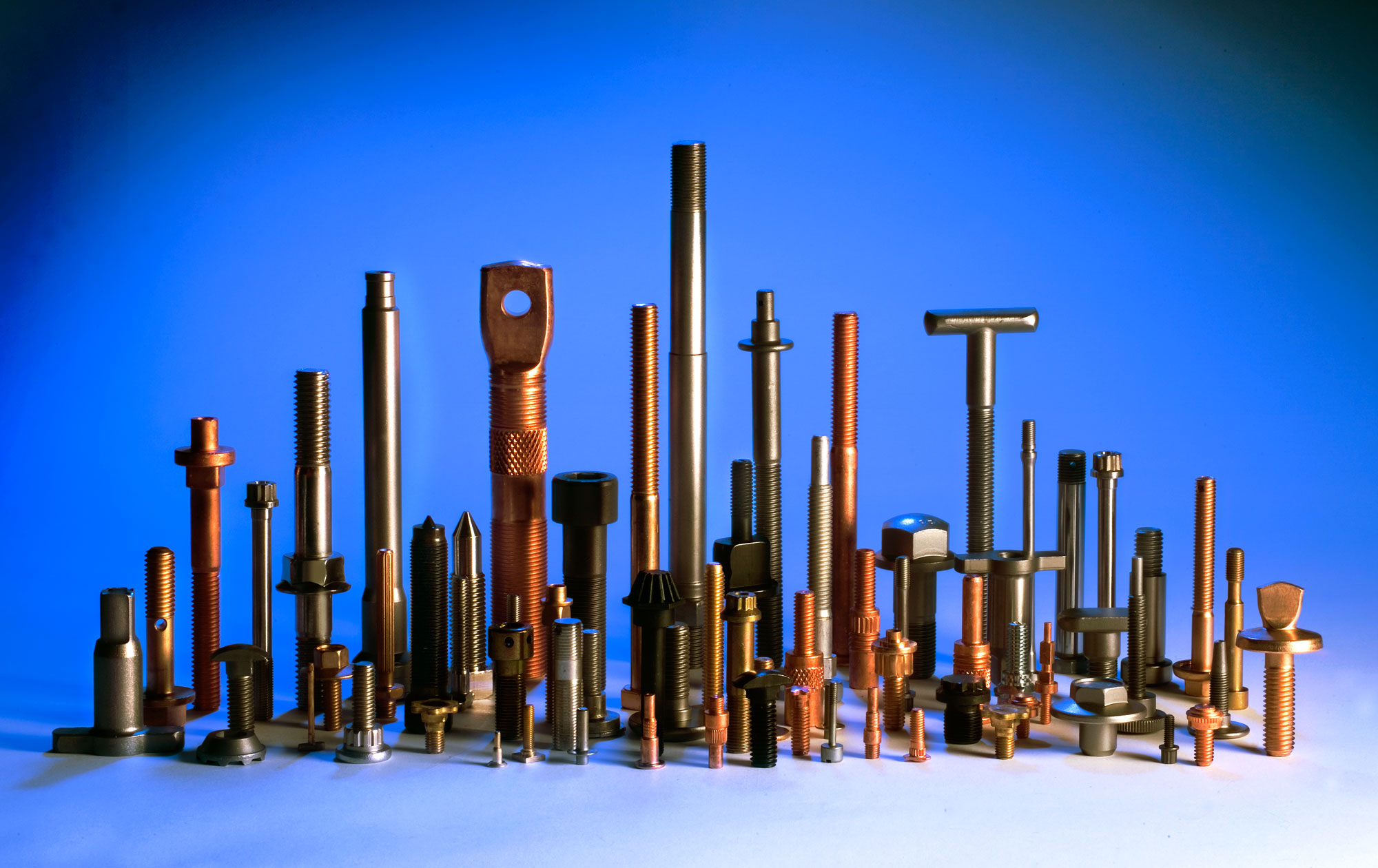
View All
Leading Manufacturers, Wholesaler, Exporters and Retailer of Bent Foundation Bolt, Cotter Foundation Bolt, Customized Foundation Bolt, Eye Type Foundation Bolt, Flat Type Foundation Bolt, Full Threaded Foundation Bolt, GI J Type Foundation Bolt, Lewis Foundation Bolt, Mild Steel Hot Dip Galvanized Foundation Bolt, Plate Foundation Bolt, T Type Foundation Bolt and Zinc J Type Foundation Bolt from Ahmedabad.
Bent Foundation Bolt
A bent foundation bolt is a type of anchor bolt with a predetermined bend in its shaft, usually at a right angle. It’s used to attach and support structural components to a concrete foundation.
- Set machines on concrete floors
- Reinforce foundations
- Ensure stability
- Prevent shifting, settling, or collapsing
- Distribute loads evenly

Cotter Foundation Bolt
Cotter Foundation Bolt is a type of anchor bolt used for securing heavy machinery and structures to concrete foundations. It features a distinctive design with a cotter pin or wedge mechanism that locks the bolt in place, providing exceptional stability and resistance to shear and tensile forces.
This design allows for easy adjustment or removal, making it ideal for installations requiring flexibility or maintenance. Typically made from durable materials like carbon steel or stainless steel, cotter foundation bolts are often treated with protective coatings for enhanced corrosion resistance.

Customized Foundation Bolt
A customized foundation bolt is a specialized fastener that is used to secure structural elements to concrete foundations. They are also known as anchor bolts and are used in many industrial and civil engineering projects.


Eye Type Foundation Bolt
An eye type foundation bolt is a type of foundation bolt that has one end forged into an eye shape and a cross piece attached to the other end. They are used to securely hold cables and steel rods in concrete foundations.
Eye Type Foundation Bolt is a type of anchor bolt that features a circular or oval-shaped “eye” at one end, designed to allow for easy attachment of cables, rods, or other components.
Flat Type Foundation Bolt
A flat type foundation bolt is a heavy-duty fastener that anchors structures to concrete foundations. They are also known as anchor bolts.
Foundation bolts are used for a variety of purposes, including: Securing structural elements to foundations, Moving heavy objects, and Fastening heavy machines to foundations.


Full Threaded Foundation Bolt
A full threaded foundation bolt is a long, threaded bolt that runs the entire length of the bolt and is used to secure structures to their foundations. Foundation bolts are also known as anchor bolts.
- They are used to attach steel plates and profiles to concrete.
- They are often used in bent profiles, such as J and L.
- They are secured with hex nuts and plate washers.
- In one-story buildings, foundation bolts are placed at 6-foot intervals.
- They should be located within 9″ to 12″ of the end of each section.
GI J Type Foundation Bolt
A GI J Type Foundation Bolt is a heavy-duty anchor bolt with a J-shape that is made from galvanized iron (GI). It is used in construction to securely anchor structures to their foundations.
- The J-shape of the bolt allows it to be embedded deeply into concrete, providing a strong anchor. The bent end of the bolt prevents it from being pulled out.
- GI J Type Foundation Bolts are made from galvanized iron, which is iron or steel coated with zinc to prevent rusting and corrosion.


Lewis Foundation Bolt
A Lewis Foundation Bolt is a type of anchor bolt specifically designed to secure heavy machinery, structural components, or other elements to concrete foundations. It is typically used in industrial and construction applications where strong and secure anchorage is essential.
- The wedge-shaped end helps the bolt lock tightly into the concrete, providing a strong connection.
- Used for anchoring heavy equipment, structural supports, and machinery foundations.
Mild Steel Hot Dip Galvanized Foundation Bolt
A Mild Steel Hot Dip Galvanized Foundation Bolt is an anchor bolt made from mild steel that undergoes a hot-dip galvanizing process to provide enhanced corrosion resistance.
- The bolt is made from mild steel, which offers sufficient strength for a variety of applications.
- Made from high-strength steel or alloy materials.
- Can be round, I-shaped, or other configurations.
- Requires minimal maintenance due to its protective coating.


Plate Foundation Bolt
A Plate Foundation Bolt is a type of anchor bolt designed with an integrated or attached plate at one end, which is embedded in concrete foundations to provide additional stability and load distribution. The plate, often rectangular or square, serves to prevent the bolt from being pulled out under heavy tensile or shear loads. This makes plate foundation bolts particularly suitable for heavy-duty applications in construction, industrial installations, and infrastructure projects.
T Type Foundation Bolt
A T-Type Foundation Bolt is a specialized anchor bolt with a “T” shaped design, typically used for securing heavy machinery, structural components, or other installations to concrete foundations. The horizontal bar or head of the “T” shape provides a firm anchoring mechanism by resisting pull-out forces when embedded in concrete. This unique design makes T-type bolts ideal for applications requiring strong and reliable anchorage under high tensile or shear loads.
- The “T” head enhances grip and prevents the bolt from loosening or being pulled out under heavy loads.


Zinc J Type Foundation Bolt
A Zinc J-Type Foundation Bolt is a specific type of anchor bolt characterized by its “J” shape and a zinc coating that provides enhanced corrosion resistance. These bolts are designed to be embedded in concrete foundations, with the curved “J” portion providing a secure grip and anchorage to resist pull-out forces. The zinc coating, applied through processes like galvanization, protects the bolt from rust and corrosion, making it suitable for outdoor and industrial applications.
- The bent end ensures strong anchoring within concrete, making it resistant to tensile and shear forces.


